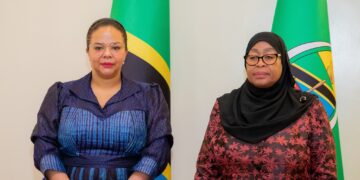Local sources say more than 100 people are missing after the suspected Sunday massacre by armed group Cooperative for the Development of Congo (Codeco) in the Mongwalu territory.
The rebels targeted an artisanal gold mine in the province and there are fears the missing miners could have been killed.
“The enemy, the Codeco militia, stormed the town of Kablangete, located seven kilometres from Mongwalu in the Banyali Kilo sector of the mine site, and unleashed untold terror,” said Jean-Pierre Bikilisende, mayor of Mongwalu.
He said the militia had attacked the Camp Blanquette gold mine and that 29 bodies had been retrieved, while another six burnt bodies had been found buried at the site.
Among the dead was a four-month-old baby, he added.
“This is a provisional toll,” he said, as there had been other people killed whose bodies had been thrown down the mine shafts.
The attackers, he said, struck after taking advantage of the weekend absence of military personnel in the area.
“We condemn this killing of civilians. This is a criminal act that must not go unpunished,” he added.
Camp Blanquette was set up in a forest, far from the nearest military outpost, so help came too late, said Bikilisende.
Cherubin Kukundila, a civil leader in Mungwalu, said that at least 50 people had been killed in the raid.
Several people had been wounded, nine of them seriously. They were being treated at Mungwalu hospital, he told AFP.
During their attack, the raiders had ransacked shops, carried off what the miners had dug out of the mine and burned down houses, he added.
The Camp Blanquette mine lies seven kilometres (four miles) from Mungwalu.
Villagers have fled the territory, fearing fresh attacks by the armed group.
Codeco, also known as Congo Economic Development Cooperative, is a loose association of various Lendu militia groups operating in DR Congo.
The group, described variously as an armed political-religious sect, was once a peaceful agricultural cooperative before transforming into an armed rebel movement.
The sect claims to represent the interests of the Lendu ethnic group.
The Lendu and Hema communities have a long-standing feud that led to thousands of deaths between 1999 and 2003 before intervention by a European peacekeeping force.
Violence then resumed in 2017, blamed on the emergence of Codeco.
Codeco is considered one of the deadliest of the militias operating in the east of the country, blamed for a number of ethnic massacres in the province of Ituri.
It has been held responsible for attacks on soldiers and civilians, including those fleeing the conflict and aid workers.
Its attacks have caused hundreds of deaths and prompted more than 1.5 million people to flee their homes.
Several of the militias that claim Codeco affiliation, which declared unilateral ceasefire in August 2020, stand accused of massacres and war crimes by United Nations.
The troubled Ituri and neighbouring North Kivu provinces have been under siege for over a year now and Congolese (FARDC) and Ugandan (UPDF) armies have been conducting joint operations there since late November 2021.
Despite the operations, recurrent attacks by militia and rebel groups cause civilian casualties almost every week.
The army and police have replaced senior administrators in a bid to stem attacks by armed groups.
Despite this, the authorities have been unable to stop the massacres regularly carried out on civilians.
Under pressure from local leaders in both Ituri and neighbouring North Kivu, who are boycotting parliament, DR Congo’s President Felix Tshisekedi has decided to review the efficacy of the state of siege.
In April, 16 people, including nine soldiers, went on trial in DR Congo accused of selling weapons to Codeco. The trial is taking place at a military court in Ituri.



































































